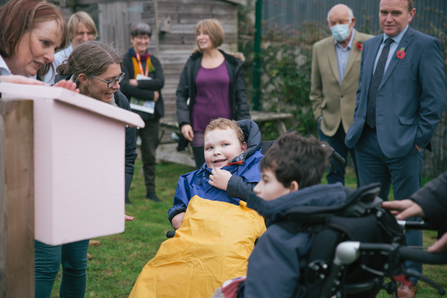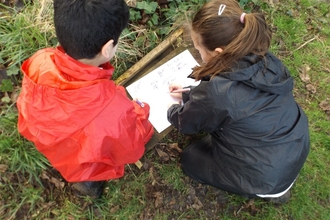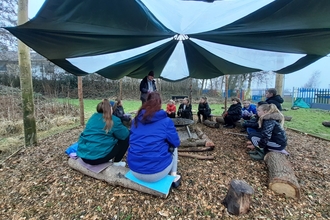Secretary of State for the Environment visits Nature Friendly School
Fresh from COP26, George Eustice, the Secretary of State for the Environment, took time to visit Curnow School in Cornwall to see first-hand the impact of the school’s participation in the Nature Friendly Schools project.

Sensory Trust
Launched in 2019, the project has worked with 48,000 pupils and 720 teachers at 180 primary, secondary, special and alternative provision schools across England.
Funded by the Department for Education and Defra, with support from Natural England, the innovative project has provided specialist training, undertaken green improvements to school grounds, funded residential trips, and embedded a sustainable and scalable outdoor learning model at schools in some of the most disadvantaged areas of the country.
The Sensory Trust is one of ten Resilience Through Nature Consortium partners in the project and works directly with special schools, creating accessible and engaging nature experiences for learning, fun and socialisation of young people with disabilities. Mr Eustice’s visit provided the ideal opportunity to showcase how the project works in practice in a special school setting and to meet some of the pupils who were benefiting from time spent in nature during the school day.
Lynsey Robinson, Project Manager at the Sensory Trust explained “Nature Friendly Schools has given us an amazing opportunity to engage with children with diverse abilities to encourage them to get closer to nature and foster their care and concern for the environment. We have been able to ensure that children with special needs are directly involved alongside mainstream schools.”
Caroline Jewell, headteacher at Curnow School added: “It is great to be part of a national project that includes all school types, we often feel initiatives are focussed on mainstream schools and our students miss out. This project has learning that can be shared across all school types to make an inclusive approach. Learners’ concentration and focus have improved. The physical movement and fresh air helps with behaviour. It is more than just a movement break it helps them regulate and re-centre.”
Throughout the project, each Nature Friendly school has received a bespoke package of support, crafted through an extensive assessment and design process which considers the needs of pupils, parents, carers and teachers. This has enabled the Nature Friendly Schools delivery team, including consortium partners the Sensory Trust, Groundwork, YoungMinds, the Field Studies Council and six Wildlife Trusts, to support teachers throughout the Covid-19 pandemic, raising their confidence to incorporate a nature-based learning approach into their lessons to benefit pupils.
Mr Eustice was given a tour of some of the Nature Friendly School interventions at Curnow School, including a new sensory trail and a rejuvenated planting area now full of sensory plants for exploration and stimulation. He was also able to experience an outdoor learning activity for himself to see the impact that it had on pupils with different levels of engagement, some with profound and multiple learning disabilities.
The Sensory Trust will continue to work with Curnow School past the end of the Nature Friendly Schools project and is currently investigating options for intergenerational projects connecting students to a local care home. The pandemic has impacted the school significantly but also made teachers aware that connecting pupils to the environment is more important for mental health and learning than ever before.



